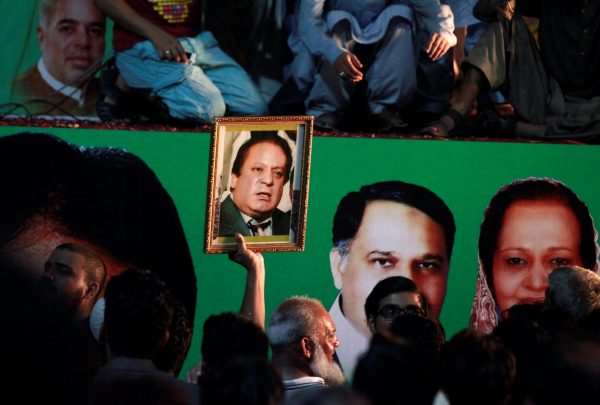Sharif was convicted for non-declaration of assets, which, according to the court’s verdict, were receivables from a Dubai-based offshore company owned by his son. Sharif had not declared these receivables in his nomination papers for the general elections in 2013.
The judges invoked Article 99 of the Representation of People’s Act and Article 62 of the constitution, which requires members of parliament to be ‘sadiq and ameen’ — truthful and trustworthy. The court also ordered four criminal investigations into the more than a dozen offshore companies and four London flats owned by Sharif’s three children. Under the Supreme Court’s instructions, the National Accountability Bureau — the country’s anti-corruption watchdog — has also begun preparing cases against the Sharif family based on the missing money trail they used for buying their London flats.
Sharif’s ousting has revived controversy around the constitutional requirements for members of parliament. Articles 62 and 63 of the constitution were amended by General Zia-ul-Haq in 1985 and have been a point of contention since due to their enormous scope. This scope, for instance, under the Article 62 1(F) of the constitution requires a member of the Parliament to be ‘sagacious, righteous and non-profligate, honest and ameen’.
Subsequent Pakistani administrations have amended the articles. Yet two years ago, Supreme Court Justice Khosa labelled these articles ‘obscure’ and ‘impractical’ to interpret, even after all the attention they have been given. Political expedience prevented most of the right wing parties, including Sharif’s PML-N party, from further amending these controversial laws.
Sharif’s disqualification drew a multitude of conflicting reactions from all sides of politics. Opposition parties, including the ex-cricketer Imran Khan’s Pakistan Tehreek-e-Insaf party, called the judgement the ‘beginning of a new era of accountability’. But the PML-N ridiculed and effectively rejected the ruling as unjust and biased against Sharif, ending his third term prematurely.
Sharif’s cohorts attacked the court’s ruling as a ‘very narrow interpretation of the law’. They also alluded to the ruling being the result of collusion between the judiciary and the country’s military establishment, which has a history of interference in the country’s politics. Being the most organised institution, the military wields considerable influence over domestic and foreign affairs.
Advocates of democracy and civilian supremacy argue that this verdict has set a bad precedent because it could open the floodgates to pursuing disqualification of rival candidates as well as further reinforcing the army’s role in national politics. Critics and political parties say that the three military coups that lasted over three decades cumulatively have stunted Pakistan’s political growth, polarised political forces and ensured that no democratically elected government can challenge its supremacy.
Hopeful politicians like Imran Khan believe that civilian supremacy can be achieved through clean, accountable governance. For him, the current elitist model of governance favours the rich and subjects millions of ordinary Pakistanis to their rule. He wants to break the status quo by ruthlessly holding the super-rich politicians accountable, in a country where 22 million children are not in school and nearly 90 per cent of the over 200 million population have no access to clean drinking water.
On the other hand, Sharif and his supporters contend that only across-the-board accountability, including that of judges, bureaucrats and current and retired military generals, could convince the country of the courts’ impartiality and commitment to accountability.
Scepticism of the Supreme Court’s verdict is rooted in history; namely, in 1958, 1977 and 1999 the court legitimised military coups under the notorious ‘doctrine of necessity’. Yet there is marked difference between the coups and Sharif’s disqualification. Historically, the court has sanctified military take-overs under the pretext of political corruption. In contrast, the most recent charges against Sharif were a result of rigorous, independent investigation by the court, which did not hesitate to invoke laws that Sharif’s own party favoured.
Time will reveal the outcome of related cases in Pakistani courts, and the results of the 2018 general election will also speak volumes for how this sentence has impacted the course of Pakistan’s democratic future. What this latest example in Pakistani politics highlights now is that a functional democracy requires constant maintenance and every institution must be subject to checks and balances.
Farooq Yousaf is a PhD candidate in politics at the University of Newcastle. You can follow him on Twitter at @faruqyusaf.

